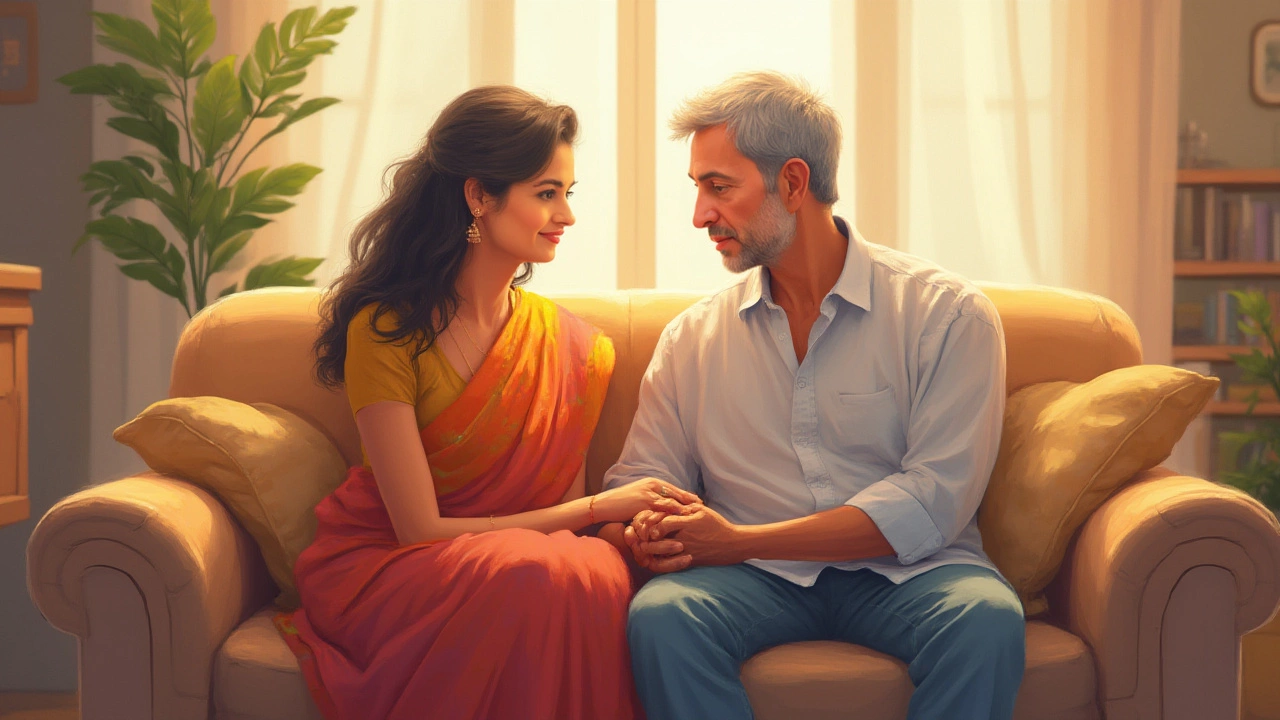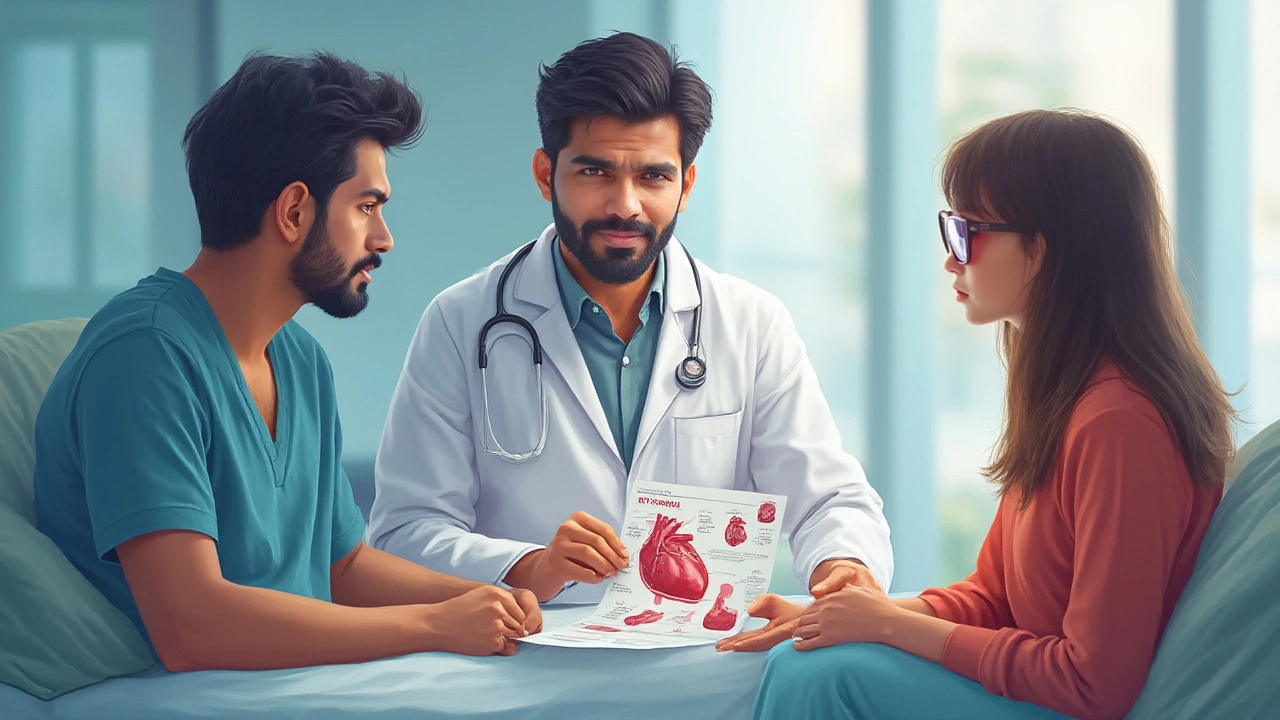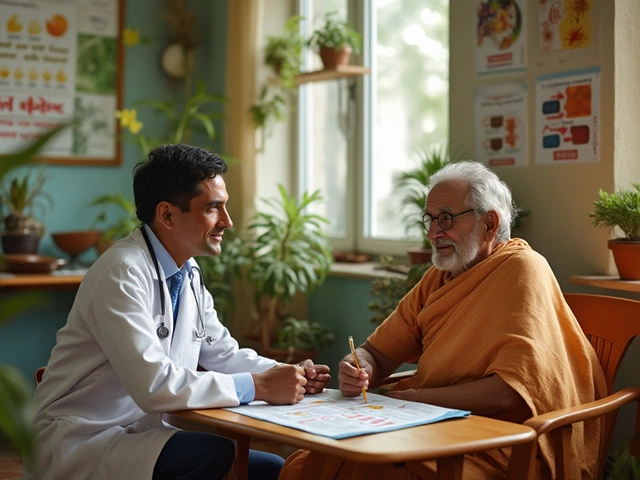
So, you’ve made it through heart surgery—major kudos, that’s no small feat. But now you’re stuck with the big question nobody talks about out loud: can you get back to oral sex after heart surgery? Funny how it’s easy to joke about hospital gowns, but not about when you can enjoy something a bit more…intimate. Trust me, you’re not the only one awkwardly Googling at 2 a.m., hoping your partner won’t notice.
Understanding Recovery and Sexual Activity
First things first, your heart just went through a wild ride—a pretty serious event, not a stubbed toe or a paper cut. After surgery, your body needs time to heal. Doctors usually focus on basics: walking, eating, breathing without coughing up a lung. Sex? That’s way down the list (unless you’re bold enough to ask, which I highly recommend—awkward as it sounds, a good heart doc won’t even blink).
There isn’t a single magic number for when it’s totally safe to have oral sex again. Most cardiologists say you can resume sexual activity—including oral sex—as soon as you’re able to climb two flights of stairs without chest pain or extreme shortness of breath. The reason behind this is simple, actually: sex, even just oral, makes your heart work harder. It boosts your pulse, blood pressure, and reminds your body to be, well, alive. That’s a workout, sometimes equal to light exercise.
Let’s take a look at some typical post-surgery timeframes for resuming sexual activity, including oral sex. Remember, these are general guidelines—your experience might be different, especially if you had complications.
| Type of Heart Surgery | Typical Wait Time Before Sexual Activity |
|---|---|
| Coronary artery bypass grafting (CABG) | 6-8 weeks |
| Heart valve repair/replacement | 6-8 weeks |
| Angioplasty with stent | 1-2 weeks |
| Pacemaker/ICD implant | 1-2 weeks (if no complications) |
Let’s be real. Whether you’re excited or nervous, listen to your body. If you get chest pain or feel dizzy, cool it. No heroics. Your partner would rather wait than call 911 in the middle of something sexy.
How Oral Sex Compares to Other Physical Activity
Here’s what most people get wrong: not all sex is high-intensity exercise. Oral sex usually requires less physical effort than traditional intercourse. No wild gymnastics, less stress on your chest, and nobody’s going to break a world record for calories burned. (If you do, let me know how.) Many doctors describe oral sex as being roughly equivalent to going for a gentle walk or taking out the trash. Not exactly triathlon stuff, unless you’re trying really hard.
If you can walk a block or go up the stairs at home without feeling wiped out, chances are your body can handle the physical demands of oral sex. If your doctor says you’re cleared for very light exercise, there’s a good chance they mean getting frisky, too. Still, talking to your doctor takes top priority (just grit your teeth and ask). They’ll know your case and can tell you exactly what’s safe for your specific situation.
One thing you should never do is push through pain. Any pain, including chest, arm, jaw, back or severe shortness of breath means you need to stop what you’re doing. Call your doctor and lay low until you get an all-clear.
Sometimes, emotions sneak in. Men, especially, can feel nervous, embarrassed or even frustrated about resuming sex. That’s normal. You had a life-changing surgery! Your body’s different now. Give yourself some slack and don’t rush—being honest with your partner is better for your heart than faking confidence.
Sneaky fact: some meds you get after heart surgery (beta blockers, antihypertensives) can dampen sexual desire or change things ‘down there’, so talk to your doc if you notice new problems and don’t let embarrassment get in your way.

Safety Tips for Returning to Oral Sex After Heart Surgery
Okay, so you’re itching to get back in the game. Totally fair. But there are some smart moves you can make to keep things safe, smooth, and actually enjoyable.
- Communication: Don’t just spring oral sex on your partner. Talk things out. Set some ground rules. It sounds awkward, but you’ll both feel safer and closer for it.
- Pick a comfy spot: You want somewhere supportive—bed, sofa, anywhere that keeps your chest comfortable and your body relaxed.
- Start slow: Don’t try to relive your teenage years. Keep things slower than usual, see how you feel, and scale up only when you’re sure your heart’s okay with it.
- Breathe easy: Don’t hold your breath. Take deep, steady breaths throughout. If you feel lightheaded or tired, take a break.
- Avoid positions that stress your chest: If surgery involved your sternum, avoid leaning on your chest or doing anything that causes chest pressure for several weeks after surgery.
- Time it right: Choose a moment when you’re not tired, after a light meal. Avoid sex right after eating a heavy dinner or drinking alcohol, since those can put extra stress on your heart.
- Know your meds: Certain cardiac drugs can mess with your sex drive, lubrication, or ability to achieve orgasm. Ask your doctor for tips or possible alternatives if you run into trouble.
- Check mood and energy: If you’re feeling anxious, sad, or exhausted, save intimacy for another time. It should feel good, not like another chore.
One study found that about 60% of heart surgery patients were nervous to return to any sexual activity, and around 30% were afraid it could trigger another heart attack. Those fears are pretty common, but most people get back to their regular sex lives once they realize how their body feels after some gentle tries. You’re more likely to be safe if you stick to light physical exertion at first and only step things up as your energy and confidence return.
Another thing: The American Heart Association says sex is as safe as climbing two flights of stairs. If that sounds tough right now, give it more time. But if you’re breezing up the stairs, you’re probably okay to give oral a try—just don’t go for marathon sessions.
Keeping Intimacy Alive During Recovery
Look, surgery can shake things up in ways you don’t expect. The first thing many people worry about (after survival) is romance. A lot of couples, including me and Anjali, found that talking openly helped us get past awkwardness. Intimacy isn’t all about sex—it’s about feeling close, sharing laughter, touch, kindness.
If you’re not ready for oral or any type of sex, don’t pressure yourself or your partner. You can still touch, cuddle, talk, and flirt. Sometimes, acting like you did before the “heart adventure” can help you both remember that you’re more than your medical history.
Doctors sometimes miss asking about patients’ sex lives, but current research highlights how important this subject is to long-term physical and mental health. So, if your healthcare team doesn’t bring it up, initiate that conversation. It’s worth it. Doctors are used to these questions way more than you’d think.
Here are a few tips to make getting back into intimacy less weird and more enjoyable:
- Treat intimacy like physical therapy: It’s a process, not a race. Some days you’ll feel up for more, other days, maybe not.
- Have realistic expectations: You and your partner might need to adapt to new ways of being together, maybe for a little while, maybe longer.
- Use humor: Joking about scars, ticking pacemakers, or hospital horror stories can break the tension and help you both relax. A little laughter goes a long way.
- See a counselor or join a cardiac rehab group: Sometimes talking to others who’ve been through the same thing makes a difference. You realize you’re not the only one who’s ever worried they’d keel over during a romantic moment!
Heart surgery changes your life, but you’re still a whole person with needs, wants, and a sense of adventure. Don’t let fear define what comes next. Stay curious, keep asking questions, and remember honest communication with your partner—and your doctor—matters more than trying to be the “perfect” patient or lover. Your new normal might surprise you in a good way.





Rohan Talvani
I am a manufacturing expert with over 15 years of experience in streamlining production processes and enhancing operational efficiency. My work often takes me into the technical nitty-gritty of production, but I have a keen interest in writing about medicine in India—an intersection of tradition and modern practices that captivates me. I strive to incorporate innovative approaches in everything I do, whether in my professional role or as an author. My passion for writing about health topics stems from a strong belief in knowledge sharing and its potential to bring about positive changes.
view all postsWrite a comment